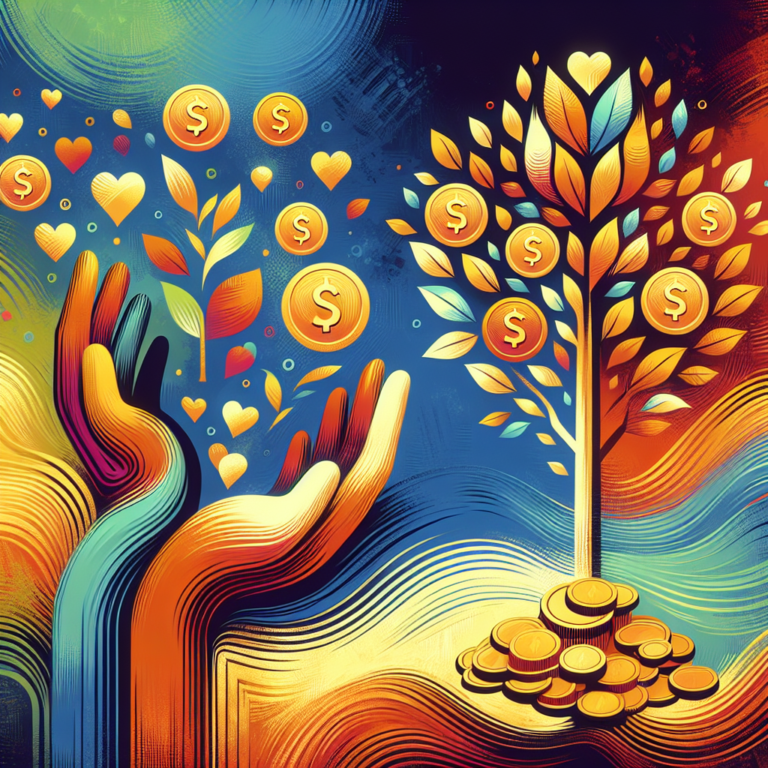Karma is a term that conjures a variety of interpretations across cultures, religions, and philosophies. At its core, karma is often understood as the central tenet of moral causation that shapes our destiny based on our actions. However, many myths and misconceptions have attached themselves to this ancient concept, obscuring its intended meaning. In this article, we will explore the origins of karma, clarify its true nature, debunk common myths associated with it, and provide a comprehensive FAQ section for those seeking further clarity.
The Origins of Karma
The concept of karma is rooted in ancient Indian religions, particularly Hinduism and Buddhism. The Sanskrit word "karma" translates to "action" or "deed." It refers to the law of moral cause and effect, where every action—good or bad—has corresponding consequences. This principle is foundational to the cycle of birth, death, and rebirth (samsara), and it is believed that our actions in past lives influence our present and future experiences.
However, karma is not a punitive measure but rather a natural law, akin to gravity. It emphasizes personal responsibility and the interconnectedness of life. As such, understanding karma requires moving beyond superficial interpretations that can distort its essence.
Common Myths and Misconceptions about Karma
Myth 1: Karma Is a Punishment
One of the most pervasive misunderstandings about karma is the belief that it functions solely as a form of punishment. While it’s true that negative actions can lead to unfavorable outcomes, karma should not be viewed as celestial retribution. Instead, it is a reflection of natural consequences stemming from one’s actions.
When individuals experience hardship, it is easy to attribute this to bad karma; however, this perspective oversimplifies the complex web of life experiences. Karma does reward good deeds but does not strictly impose punishment for wrongdoing. Life is influenced by a multitude of factors, including environment, choices, and circumstances beyond our control.
Myth 2: Karma Is Instantaneous
Another myth is the expectation of immediate consequences for actions. Many people believe that if they do something good or bad, they will see instant results. However, karma operates on a much more complex time scale. The repercussions of our actions may manifest in this life or future ones; they are certainly not always immediate.
This misconception can lead to frustration or disillusionment when individuals do not receive the expected results right away. The time delay is a critical aspect of karma, encouraging patience, reflection, and deeper personal growth rather than an "instant gratification" mentality.
Myth 3: Karma Is Deterministic
Karma is often misconstrued as a deterministic force that preordains life outcomes based on past actions. While our actions certainly have consequences, they are not the sole determinant of our fate. Human beings are endowed with free will, meaning we can make choices that can alter our path.
The belief in a deterministic karma undermines the importance of personal agency. Just as past actions influence the present, our current choices shape the future. The essence of karma is dynamic and interdependent, emphasizing that we have the power to shift our course through conscious and deliberate action.
Myth 4: Karma Coincides with Reincarnation
While karma is closely associated with the cycle of reincarnation, it is essential to remember that karma exists independently of reincarnation. Not every belief system views reincarnation as a reality. In traditions where reincarnation is central, karma influences future births; however, karma is also applicable within a single lifetime.
For many, understanding karma means reflecting on choices and their consequences. It is about cultivating awareness and making reparative choices—that can enhance one’s current existence rather than relying on future lives for rectification.
Myth 5: All Good Actions Will Be Rewarded, and All Bad Actions Will Be Punished
This myth addresses the notion of black-and-white morality, suggesting that good begets good and bad begets bad. Life, however, is much more intricate than this binary perspective. An individual’s circumstances, intentions, and societal factors also influence consequences.
The relationship between action and result is not straightforward. Good deeds may go unnoticed or unacknowledged, and bad actions may not yield immediate consequences. Therefore, aligning actions with integrity and compassion is crucial, regardless of the anticipated results.
Myth 6: Karma Is a Popularity Contest
Sometimes, believers in karma mistake social recognition for karma’s workings. They may think that performing good deeds should inherently earn them social clout or validation. While acts of kindness are virtuous, the premise of karma is far deeper than seeking approval from others. The focus should be on genuine intention and personal growth rather than external acknowledgment.
Karma emphasizes integrity and personal responsibility, urging individuals to engage authentically and selflessly. The intrinsic value of good actions lies within the intention behind them, not in the accolades they may elicit or the rewards they may accrue.
Conclusion
In unpacking the layers of karma, we see that it is neither a simplistic ledger of rewards and punishments nor a deterministic narrative that restricts our agency. Instead, karma invites us to engage in self-reflection, embrace personal responsibility, and recognize the interconnectedness of our actions within the greater tapestry of life. As we navigate our journey, understanding karma holistically can empower us to cultivate compassion, make positive choices, and find deeper meaning in our existence.
FAQs about Karma
Q1: Does karma apply only to personal actions, or does it also encompass the actions of others?
A1: Karma primarily refers to individual actions and the responses they generate. However, our interconnectedness means that the implications of others’ actions can influence our own experiences and decisions, creating a web of collective karma.
Q2: Can I change my karma?
A2: Yes, you can change your karma through conscious choices and actions. The principle of karma is not fixed, and by engaging in positive behaviors and decisions in the present, you can influence your future experiences.
Q3: Is karma a religious concept only, or can anyone believe in it?
A3: While karma has its roots in religious philosophies like Hinduism and Buddhism, it extends beyond religious boundaries. Many people from various backgrounds adopt the concept of karma as a guiding principle for ethical living.
Q4: How can I start practicing karma in my daily life?
A4: You can start by cultivating awareness of your actions and their consequences. Strive to act with kindness, compassion, and integrity towards others, and reflect on how your choices align with your values.
Q5: Does karma only refer to actions, or does it include thoughts and intentions?
A5: Karma encapsulates not just actions but also thoughts and intentions. The mindset behind your actions significantly influences your karmic impact, making it essential to cultivate positive thoughts alongside righteous deeds.
Sure! Please provide a prompt or let me know what you would like assistance with, and I’ll be happy to help., #Unpacking #Karma #Debunking #Common #Myths #Misconceptions, #Unpacking #Karma #Debunking #Common #Myths #Misconceptions, 1734910788, unpacking-karma-debunking-common-myths-and-misconceptions





